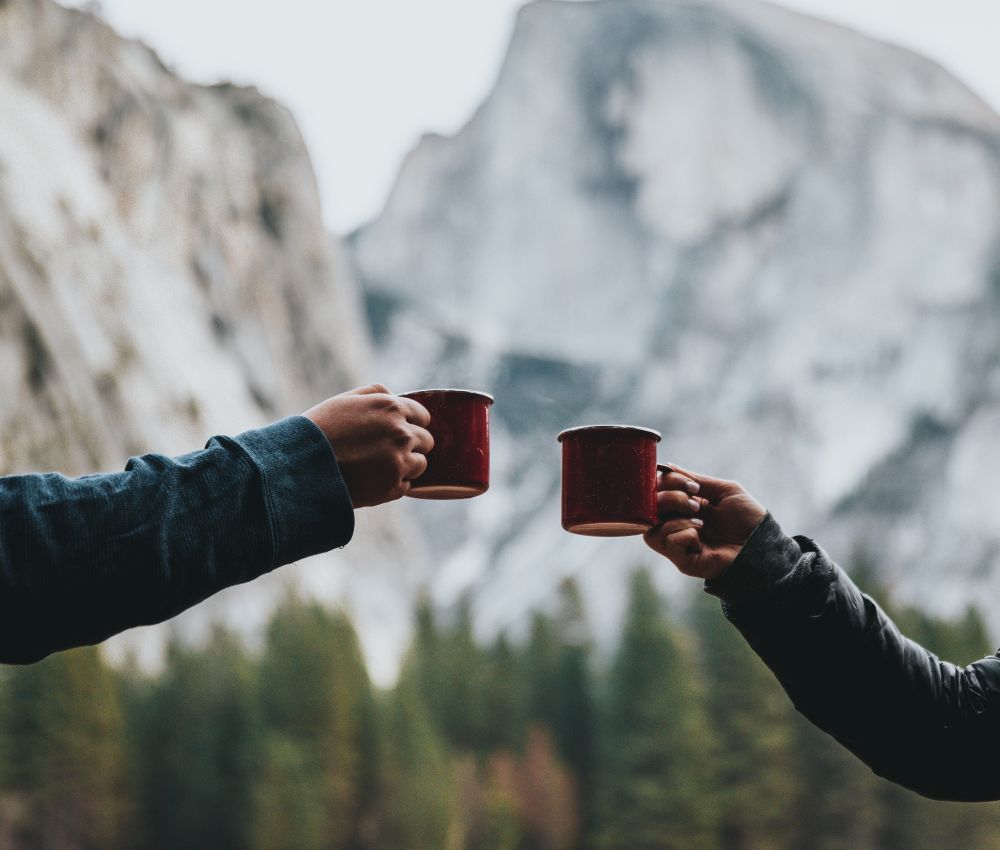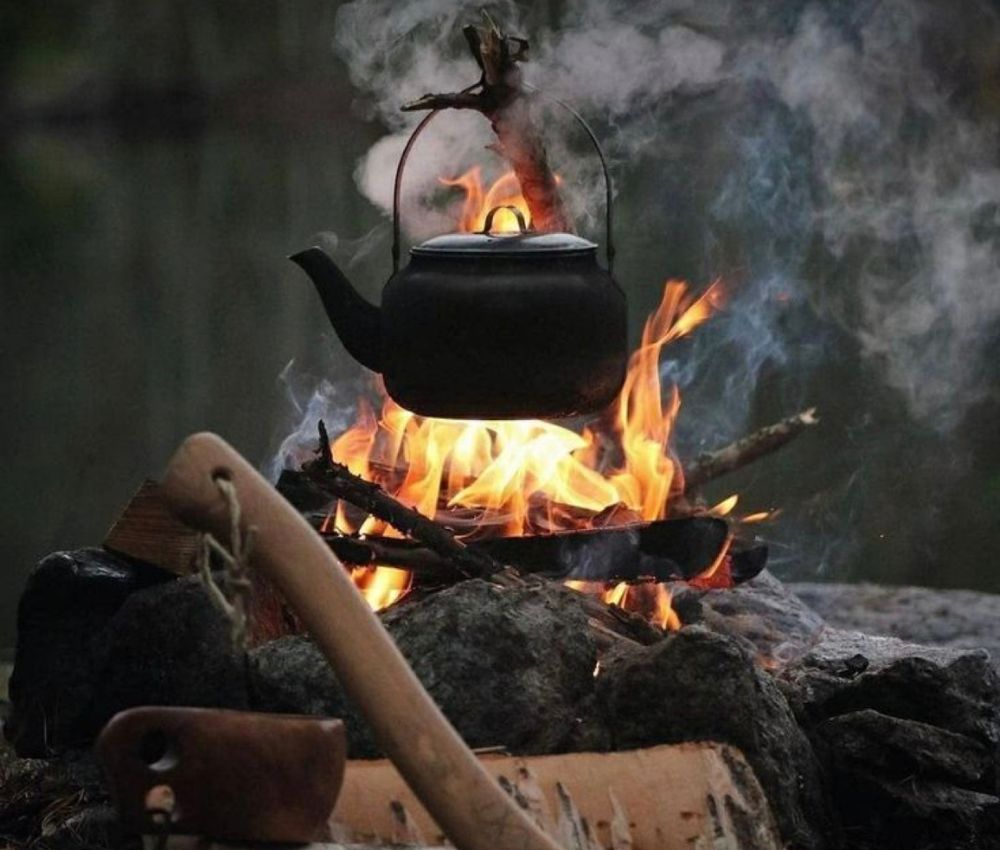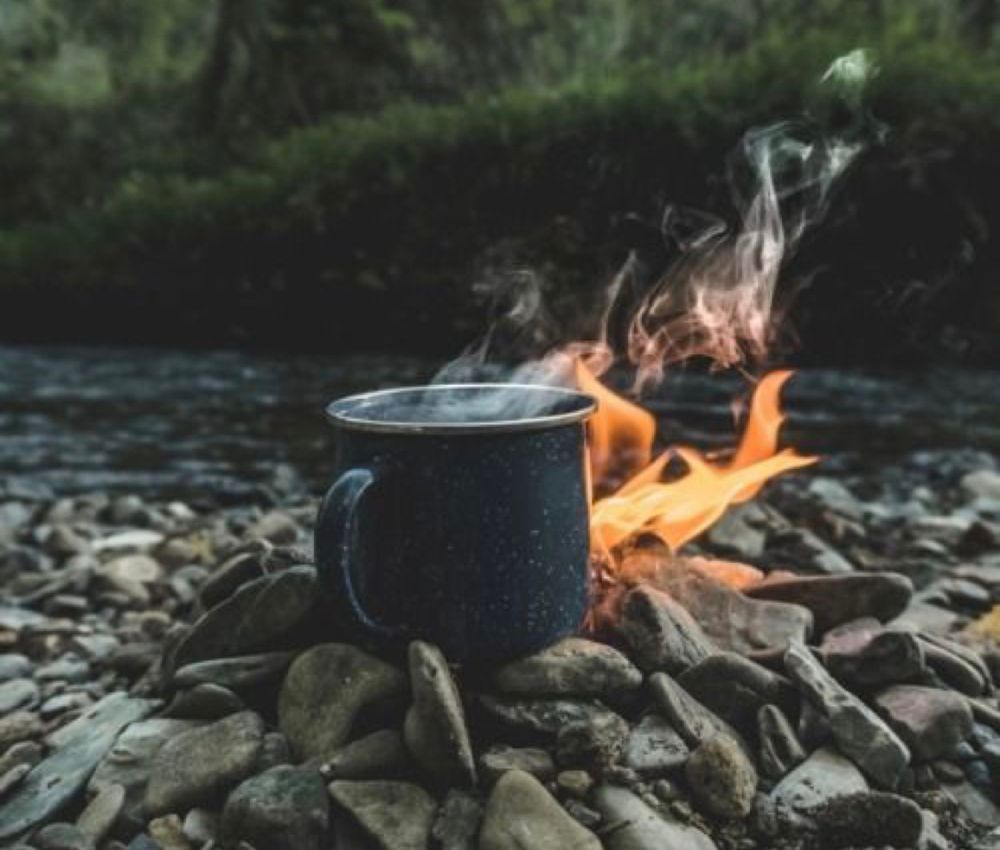The Values of Tolerance and Understanding

Mālō e Lelei, talofa, kia ora, hey everyone - in last week's Cups of Tea we had a more intimate conversation and a look into the world of what it’s like living in the USA at this time with a visitor who joins us from the states. What followed was a conversation on courage, gathering people and transitioning into the next era of social systems in the Western World.
Living inside transition
We talked with a Cups of Tea community member who has recently returned to living in the USA and compared the change in political climate from Aotearoa “I felt like I was like the frog that had been put into the boiling water. But all the people who live here have been the frog that's gotten up to temperature, so all of the people who live here are just in it without realising what they're in”
Beneath the surface of news headlines and political shifts, one speaker described what it feels like to live “inside the transition” to sense the ground moving while trying to stay steady. The amount of disruption in communities was significant “And Los Angeles… wildfires, then the ICE raids were starting, like on mass, where people were being affected and disappearing like that was starting and escalating quickly.” There was also a further story that did not make headlines in Aotearoa the: “No Kings” march or rally or protest, whatever words people want to use, that happened across the whole country, where millions of people took part in this thing.”
Our community member concluded “I think what my job is going to become is going to be my role to help people through the transition.”
The emotional toll of instability
The conversation turned to the toll of political decisions on individuals and communities affected: “So I'm like, kind of doing okay, but no one else is okay… the levels of depression are really high, anxiety levels are really high. People are just really scattered…relationships are loose and weird.”
That effect feeling powerless in the presence of increased display of law enforcement was discussed. Our friend in the USA observed: “Police helicopters, there's more than I've ever seen before… It was just like constant air patrol. And then that was also the time when the military was on the street.” Another time they recalled driving on the motor way and “I saw a lot of lights coming at me, so I started counting, and there were over 60 police cars going the other direction.” In response to these observations they concluded: “I feel that I'm doing everything I can to ground myself in the process, to stay grounded through it. I'm doing that in every way I can possibly imagine. I'm doing ‘all of the ways’.”
One of our Walk Together founders reflected “The thing that keeps hitting me from every direction is the word challenge or challenged, and it's both, what's going on in the States, not just as a country, but for individuals…And secondly, your use of the term transition was a comforting thought, but it's a hell of a challenge for you, which puts you in a central spot, I think.” Another added “I commend you on your courage”.
Our friend responded about finding mutual spaces and communities “The reason why I'm talking a lot about collecting people is because… I'm looking for… folks that are already in the space and the ways that they're in the space. I think each one of us is showing up to this moment in the way we're supposed to.
This was reflected back as a “good definition of relationship building.”
Systems Change in times of transition
The essence of Walk Together recognises relationship building as a key pillar of System Change, with one of our Kaimahi saying “I think at this grassroots level, it's important to have those collective groups that support each other that lean into each other, because there are so many external forces that are trying to divide us” With another reflecting “Yeah, critical mass gathering and that sort of, that collectivism. It does bring a sense of hope.”
There was a line of thinking touched on that pondered the need to start all over, for the current system to fail or fall and then rebuild with one participant saying “politics can't do any fundamental shifts or change or movements because of the way that politics work; they're built on top of structures and systems that are broken. And these systems are just like concrete slabs that have a lot of, you know, like cracks in them.” They expanded by saying “this will continue to shift and change everywhere, so what matters most in the world right now is that like it or not, we all need to get very uncomfortable, and it all needs to fall over like everything we know has to fall over so that we can build up something else.”
Another view was introduced to the conversation that it would be desirable to bring some systems forward, particularly indigenous systems that have been in countries for a very long time. “Some systems, you know, our Māori systems we don't want to fall over. We want to resurrect and reinstate them. …but [currently] our rights are being stripped completely away day by day, by law, right in front of our eyes, and very, very quickly. … some of the system might need to fall down, while other parts of it might need to remain standing. And that's why Mutual Ways are important.”
Another Walk Together member reflected on the indigenous histories across Australia, New Zealand and the Pacific as an example of resilience “there are certain things that should be retained, and that spirit, the knowledge of how to survive what falls down and rebuild from what remains, are powerful lessons, I think, to be retained, which, for me, is the essence of Walk Together.”
Leaving us with some words of wisdom they closed by saying “as you talked about mutual ways, you don't start with rebuilding the world. You start with a little bit of a rebuild that people can agree on…as long as you've still got some sort of social system, you have a chance of relationships, and relationships are the basis of rebuilding if it needs to happen.”
When the values of tolerance and understanding break down into political divides, left or right, “my belief system is superior to yours,” we begin to see the erosion of democratic systems across much of the Western world. Democracy, as it is practiced in these contexts, is built on shared values and the ability to hold difference without destroying connection. Yet, as these systems strain under the weight of division, we are reminded that Western democracy is only one way of governing. Across Aotearoa, and in Indigenous contexts such as language and clan groups in Aboriginal Australia, relational systems of governance such as hapū and iwi-based decision-making have long centered collective wellbeing, dialogue, and reciprocity. These local and community-rooted models remind us that what will heal division is not greater control or policy reform, but the slow and steady rebuilding of relationships. By returning to common ground, we can value differences, stay connected, and still get along.
Come join us for a cuppa every Friday at 11am. Register here whānau.

